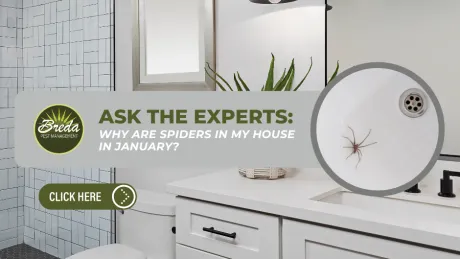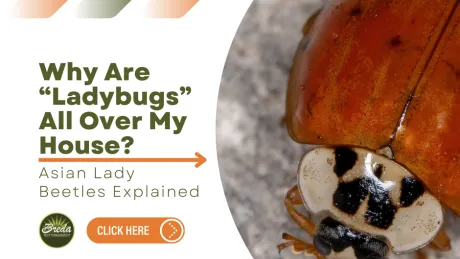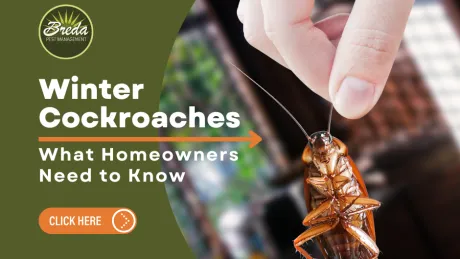
Picture this: you step outside, eager to enjoy the warm spring sunshine and your backyard. Suddenly, you spot a cloud of tiny flying insects. As a Georgia resident, you know that this swarm could be one of two pests: termites or ants. Before you abandon your plans to enjoy the outdoors this spring and summer, let us help you identify what the swarms are outside your home and give you the information you need to keep your Georgia backyard pests under control.
How to Tell the Difference Between Termites and Ants:
Clue #1: Season - If you're spotting swarms in spring, you're probably dealing with termites, specifically subterranean termites. They swarm in the spring as they're building their colonies. If you're spotting swarms in summer, you're probably dealing with ants.
Clue #2: Appearance - If you're able to get close, take a look at the insect. If it's wings are twice the size of its body and it has straight antennae, it's a termite. If it's wings are closer to the size of its body and it has bent antennae, it's an ant.
Clue #3: Location - If you're finding swarms near your home, specifically around entry points like doors and windows, that's usually a good indicator that the swarm is termites. Termites have wings that fall off once they land, so if you spot tiny wings outside your doors or windows, that's a huge indicator that you've got a termite problem. Ants will typically swarm on or around large parts of your home or yard, like chimneys, tall trees, or sheds.
How to Get Rid of Termites or Ants
Once you've determined which pest you're dealing with, you will then have a direction to take to get rid of them before they cause damage or harm. If you've determined that your insect swarm is termites, it's crucial that you react quickly. Swarming termites are usually out to establish new colonies or expand existing ones. If your swarm suddenly goes away, you might think you're in the clear. But in reality, your situation has escalated, since a lack of swarming means that the termites have gotten comfortable and are going to work destroying your home.
If you suspect you have a termite infestation, your first step as a metro Atlanta homeowner should be to call Breda Pest Management. Not only do we use state-of-the-art infrared and microwave technology to locate the termites and get rid of them, we also offer a 10-year renewable warranty that includes repair coverage. Termites can return, even after extensive extermination, so our warranty covers your home for the next decade against termites. Not a bad deal!
With swarming ants, you are witnessing either a mating season for the ants or the ants around your home are starving and looking for new food sources. Whatever their motive, don't let these ants continue to terrorize your home. Survey your home's foundation to make sure there aren't any anthills burrowed against it, and inspect the exterior of your home for any cracks in the siding or bricks. Ants will burrow their way into anywhere, so it's important to repair or replace any exterior damage or wear.
If you come across anthills in your yard or landscaping, use a pesticide spray or granular product to eradicate the ants living in the mound or plant. If the anthill isn't affected by your efforts or you spot more in your yard in the coming weeks, give Breda Pest Management a call. Our technicians can identify all anthills and apply a treatment that will not only get rid of your ant problem but also keep your beneficial insects and existing landscaping happy and healthy.
If you happen to need ant removal services or termite treatment services, don't hesitate to contact us today!
If you find yourself needing pest control and want it handled thoroughly, don't hesitate to give us a call. The Breda Guarantee promises to fix your pest problem and keep it fixed—no matter the circumstances. Schedule a consultation online or give us a call at 770-466-6700.



